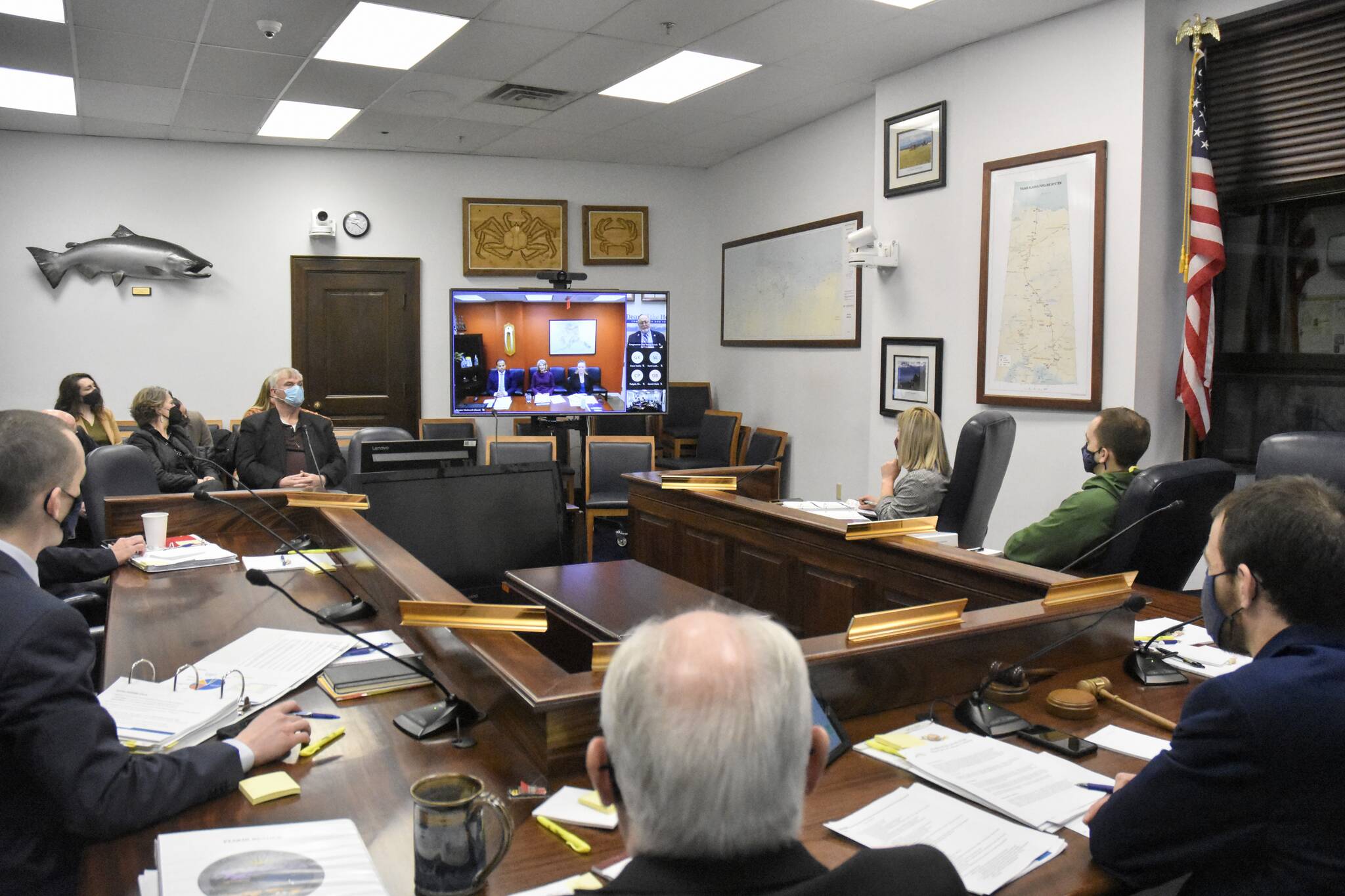Alaska’s congressional delegation urged state lawmakers to work together to capture as much funding as possible from last year’s massive federal infrastructure bill.
“I don’t want to see any bickering,” said U.S. Rep. Don Young, R-Alaska, speaking to the House Labor and Commerce Committee Friday morning.
All three members of the delegation emphasized that preparation would be necessary to capture funds and it would take members of the Legislature, the governor’s administration and the delegation working together to ready the state.
Much of the funding would be in competitive grants, said U.S. Sen. Lisa Murkowski, R-Alaska, and Alaska would need to present a compelling case to federal agencies to secure funding.
“You’re going to have some folks that will be struggling to apply,” Murkowski said of businesses, local governments and other smaller organizations that may be seeking funding.
“I think this is an area where the state can be helpful,” Murkowski said.
Most of the programs would require local matching dollars, Murkowski said, something lawmakers should consider when crafting yearly budgets. Young suggested the Labor and Commerce Committee set up an additional oversight committee to work in concert with the delegation’s staff to monitor funding opportunities.
Murkowski urged lawmakers to review what she called her “infrastructure bible,” the new website build.gov, which outlines the various funding opportunities. She said she hoped to hold a grant symposium in April, bringing together federal agencies to help explain the various grant opportunities.
Members of the delegation stressed the transformative nature of the bill, and said that if the state, tribal and federal agencies worked well together, the benefits to the state would be historic. But they also stressed the process would take significant planning on the part of state and local organizations to effectively implement programs.
“How we can work together to operationalize this,” said Sen. Dan Sullivan, R-Alaska. “It’s not a perfect bill, I do think it will help address in significant ways Alaska’s historic infrastructure deficit.”
Sullivan noted the potential benefits the bill’s commitments to broadband and energy infrastructure could bring to the state, and said the state should work to develop a local workforce to implement those projects.
“Whether it’s the maintenance or the building we want to make sure we’re doing that with our own citizens,” Sullivan said.
The delegation said that various elements of the bill will be rolled out over five years, and there will be many opportunities to apply for grants and other programs. The guidelines for many of the federal programs have not yet been released, Murkowski said, but that gives state officials time to plan.
“We need to be planning ahead. Your staff should be monitoring this carefully for deadlines,” Murkowski said. “We’re going to have enough to keep us busy. Know that this is going to be coming at us over five years.”
Contact reporter Peter Segall at psegall@juneauempire.com. Follow him on Twitter at @SegallJnuEmpire.


